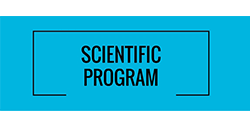
Arup Kumar Sarma
Indian Institute of Technology Guwahati, India
Title: Sustainable approach of rainwater management and application for mitigating climate change impact on tea agriculture in northeast India
Biography
Biography: Arup Kumar Sarma
Abstract
Future projection of precipitation and temperature in northeast India under climate change scenario has been carried out using different combinations of GCMs and RCP scenarios. Study has revealed that increase in total annual precipitation varies from 3% to 27% with increase in number of dry days. This indicates high intensity rainfall of short duration in monsoon and longer dry spell. Visible impact of such changed scenario has been experienced in various sectors of economy including agriculture. Tea, one of the major commercial crops of northeast India, is suffering because of this changed scenario. To mitigate adverse impact of climate change, society can take up various steps for reducing carbon emission, increasing carbon sink and adapting themselves to the changing scenario. The increasing temporal variation in water availability can be reduced by increasing surface storage by different means. Rainwater harvesting, if done in large scale and in an innovative way considering sustainability aspect can contribute significantly towards mitigating climate change impact on the society in general and water. Efficient management of rainwater will also help reducing flood and drought. To achieve multiple benefits of rainwater harvesting, a new and flexible method, named as Sustainable Approach of Rainwater Management and Application (SARMA) has been developed and presented in this paper. This proposed method, in addition to conventional benefit of meeting water-need for day to day application, provides benefits of irrigation, flood moderation, improved drainage condition, groundwater recharge, pisciculture, carbon sequestration, reducing power consumption and hence carbon emission and micro-climate moderation. Field application of this method in Dolowjan Tea Estates of India has generated visible evidence that efficient management and application of rainwater using SARMA method not only can provide other conventional benefits but also can bring favorable micro-climatic changes and thus can be considered as a solution to climate change.

